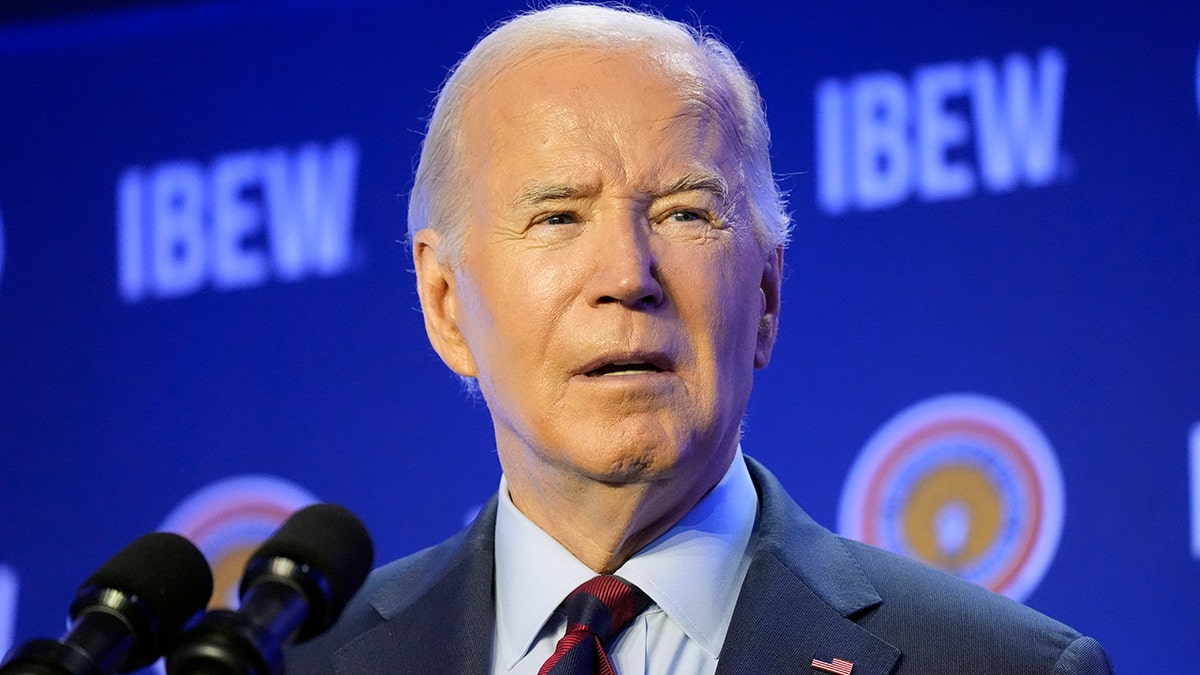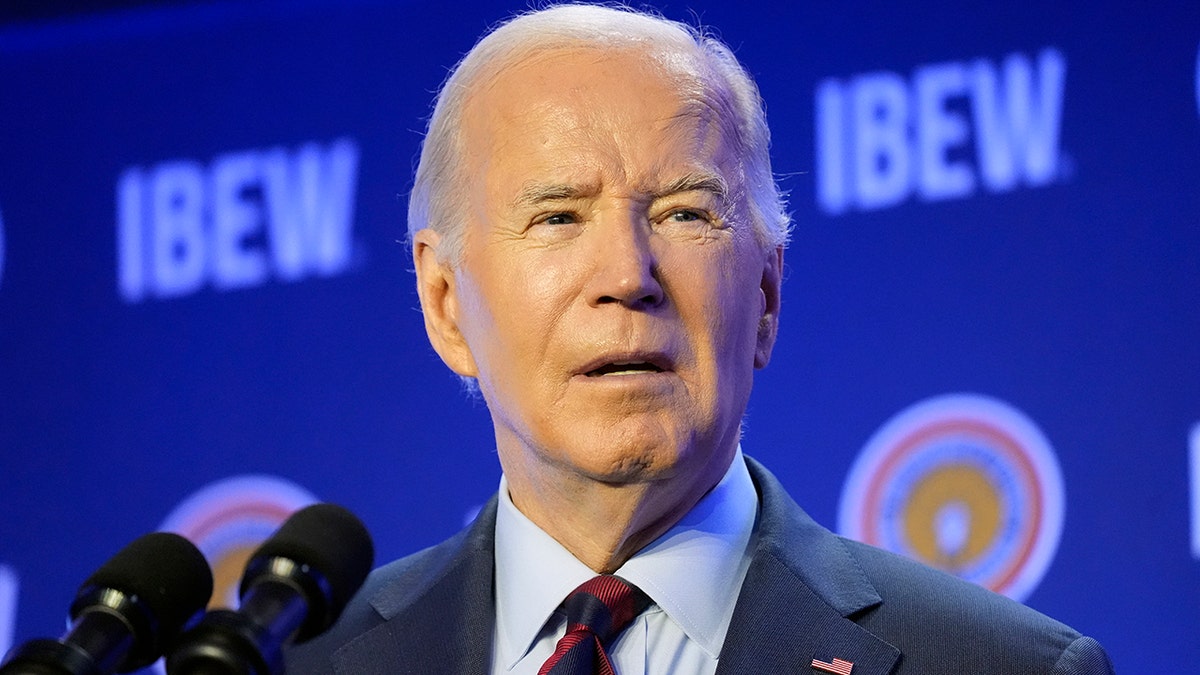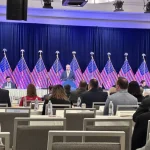
President Biden called the allied nation of Japan “xenophobic” in a speech this week, alongside a slew of other nations he claims are suffering from lack of immigration.
Biden made the remarks extolling the virtues and benefits of immigration on Wednesday at a fundraiser in Washington, D.C.
“This election is about freedom, America and democracy. That’s why I badly need you. You know, one of the reasons why our economy is growing is because of you and many others. Why? Because we welcome immigrants.”

President Joe Biden speaks at the IBEW Construction and Maintenance Conference in Washington. (AP Photo/Alex Brandon)
“Why is China stalling so badly economically? Why is Japan having trouble? Why is Russia? Why is India? Because they’re xenophobic,” the president continued.
Japan and India are considered important allies of the United States, while China and Russia are seen as rival powers with strained international relationships towards the West.
Biden suggested these countries’ lower levels of immigration compared to the US is what is causing their respective economic concerns.
“They don’t want immigrants. Immigrants are what makes us strong. Not a joke. That’s not hyperbole, because we have an influx of workers who want to be here and want to contribute.”
Fox News Digital reached out to the Embassy of Japan for comment but did not receive a response.
JAPANESE TOWN TO BUILD SCREEN BLOCKING MOUNT FUJI VIEW IN BID TO FEND OFF TOURISTS

Migrants at the front of the line are processed for entry by U.S. Customs and Border Protection. (Jon Michael Raasch/Fox News Digital)
Several Japanese lawmakers reacted to Biden’s comments on social media, expressing confusion or skepticism towards the president’s attitude.
“Migration is a problem that European leaders are struggling with too. There aren’t any countries that have solved this problem as of now,” said Mizuho Umemura, a member of the conservative Nippon Ishin no Kai Party who holds a seat in the House of Councilors.
He continued, “I hope that President Biden will solve the problem in New York before he says things like this. Depending on the presidential election, there could be a 180-degree change in policy, and there is no need for Japan to follow suit.”
Fellow House of Councilors member and leader of the right-wing populist Sansei Party Sohei Kamiya was more direct, writing that U.S. “failures” caused by immigration contribute to Japan’s hesitance to embrace similar practices.
“It’s not that we’re xenophobic, we are being cautious after seeing your failures,” Kamiya said. “You are meddling too much in our internal affairs.”
CLICK HERE TO GET THE FOX NEWS APP

Fumio Kishida, Japan’s prime minister, left, and US President Joe Biden, at a news conference during a state visit in the Rose Garden of the White House in Washington, D.C. (Yuri Gripas/Abaca/Bloomberg via Getty Images)
National Security Council Coordinator for Strategic Communication John Kirby defended Biden’s remarks on Thursday in a press gaggle.
“Look, I think the broader point the president was making and I think people all around the world recognize this, that the United States is a nation of immigrants and it’s in our DNA,” Kirby told reporters. “We’re stronger for it. We’re not going to walk away from it. And that’s the broader point that he was making.”
Asked why the president singled out two ally nations to make the point, Kirby demurred and emphasized that Biden was intending to praise the U.S., not denigrate Japan or India.
“Again, making a broader point about this country, our country. Our allies know very well how much the president respects them, values their friendship, values their contributions,” Kirby responded. “And you don’t have to look honestly very far, very hard to see that bear out in the things that we’ve been doing in the Indo-Pacific with Japan, South Korea, the Philippines.”








